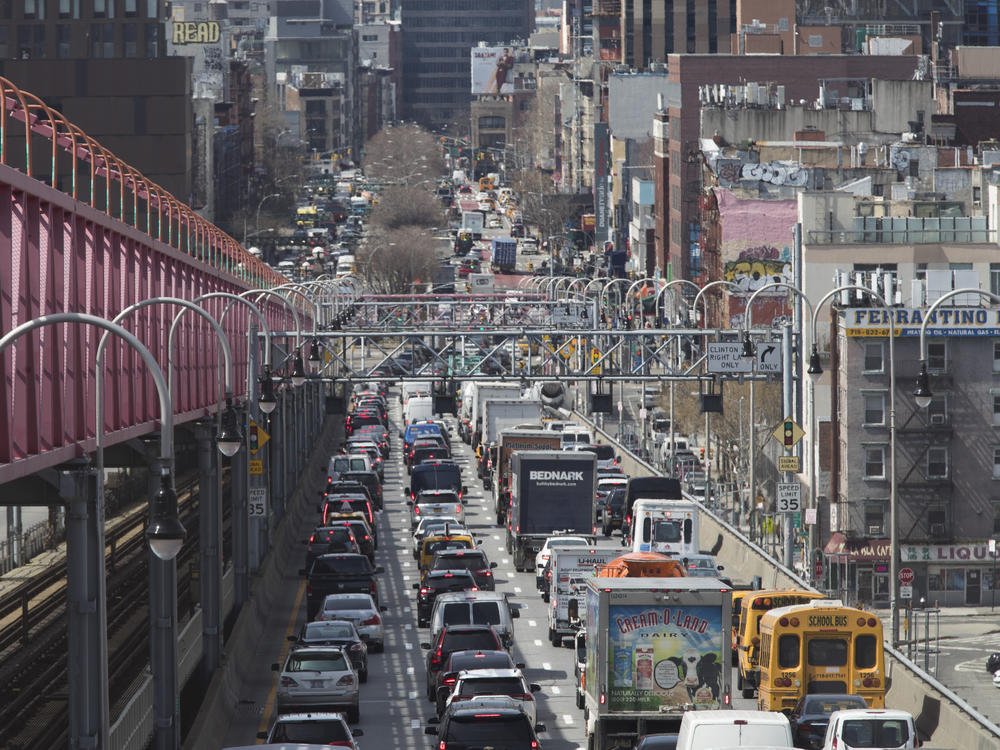Section Branding
Header Content
NYC Setting Up Quarantine Checkpoints For Travelers From COVID-19 Hot Spots
Primary Content
New York City Mayor Bill de Blasio announced Wednesday that for the first time law enforcement units will establish COVID-19 quarantine checkpoints.
"We will have checkpoints at key entry points to the city," de Blasio said at his daily briefing.
The goal is to track travelers and city residents returning home from more than 30 states now designated by New York state as coronavirus hot spots. Those people will be required to complete travel health forms to support contact-tracing efforts.
"Travelers coming in from those states will be given information about the quarantine, reminded that it is required and not optional," de Blasio said, adding that stiff fines can be levied against those who flout public health rules.
The checkpoints will be operated by various law enforcement agencies, with the New York City Sheriff's Office coordinating the effort "at major bridge and tunnel crossings."
"We need to ensure visitors and New Yorkers returning home are taking the necessary precautions," Sheriff Joseph Fucito said. "We're going to deploy to be very visible."
Travelers from most of the U.S. are affected by the state rules requiring 14-day quarantines. While enforcement has increased, public health officials acknowledge compliance largely relies on public cooperation.
"Having people see that these checkpoints are starting to happen around the city is going to send a powerful message," de Blasio said.
City officials said they're offering travelers help and support — including food and medication delivery — while they're in quarantine.
This week, New York state officials added Rhode Island to the list of "hot spot" states where infection rates are high enough to trigger the travel restrictions.
Delaware and Washington, D.C., were removed from the list.
New York City was once the epicenter of the nation's COVID-19 outbreak, but infection rates have plummeted, hovering now around 1% of the people tested.
Local and state officials said they're eager to avoid a second wave.
Copyright 2020 NPR. To see more, visit https://www.npr.org.

